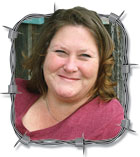Summer is almost here in the Ozarks, and that means lots of junior livestock shows, county fairs and hot, humid days ahead.
While June kicks off many summer activities in our communities, it’s also the month to salute our nation’s dairy farms with National Dairy Month.
National Dairy Month, according to the International Dairy Foods Association, began in 1937 as National Milk Month. It was created to stabilize the demand for dairy products when production was at a surplus, but eventually transformed into the National Dairy Month.
Just think of all the delicious and nutritious foods that come of our nation’s dairy farms. Cheese of all flavors, creamy butter and yogurt, sour cream, ice cream and other cultured foods are staples in many of our homes. We also can’t forget just how good a big cold glass of milk is, especially chocolate milk.
The economy and a surplus of milk have been tough on the dairy industry the last several years, forcing more and more dairy producers to shutter their milking parlors. Some have gone into other areas of production, such as beef cattle, while others have just called it quits, leaving their land and equipment idle.
Unfortunately, our nation’s hard working dairy farmers have been branded as heartless, newborn calf-killing monsters by those in the non-agriculture world. I take every opportunity I have to inform consumers, but it often falls on deaf ears.
As a part of his 50-state tour, Mark Zuckerberg, the founder of the social media giant Facebook, recently made a trip to a family-owned Wisconsin dairy/beef farm. Zuckerberg, who had never been on a dairy farm in his life, saw first hand how cows are milked and cared for. He also had his first experience feeding a bottle calf, driving a tractor and drinking raw milk (which he said was delicious). He also had his first meal of brats and cheese curds. (I can see the cheese curds being an acquired taste for someone who was born in White Plains, New York, but brats? That’s a summer stable at my house)
Zuckerberg was impressed with the family farm.
“The family is incredibly disciplined. Everyone works daylight to dark, seven days a week,” he wrote on his Facebook page. “When we were driving around his property, (farm owner) Jed (Gant) told me he’d rather feed the cattle than feed himself if it came down to that.”
I thought since Zuckerberg was a well-known Millennial celebrity, his initiative to actually step foot on a working dairy farm might help change the minds of those who, like him, have no idea about dairy farming, or at least make them take a second look at the industry. Well, that didn’t happen.
Zuckerberg was criticized for visiting the farm because animals were “exploited” and the dairy industry was pure brutality. I could go on and on with the negative comments Zuckerberg received about the farm visit, but he (or his “people”) didn’t respond to any of the negative comments. Maybe he/they felt as if he/they weren’t educated enough to fend off the droves to vegans. Zuckerberg’s silence on the topic, to me, shows that the Harvard drop out is smarter than 99 percent of the people who commented on the post.
On the bright side of the dairy industry, the Ozarks is blessed to have members of the younger generation who have dreams of taking over the family dairy business, or starting one on their own. I hope they are able to make those dreams a reality.
Hopefully the next generation of dairy farmers will also have a better grasp on how to deal with those who are anti-animal agriculture than I am. I try and try to clarify some of the misinformation, but after awhile I just get frustrated and tell people to get a life. Sad, but it’s the best comeback I have without reverting to asking people where their heads are, which is why I might be banned from commenting on certain websites and public forums.
There was also a little good news recently from the U.S. Department of Agriculture regarding milk prices with the prediction of a slight upswing in prices paid per hundredweight to dairy farmers in 2018, thanks – hopefully – to a stronger global demand. I’m sure many dairy farmers in the Ozarks aren’t going to hedge their bets on the projected price increase, but they will remain hopeful.






